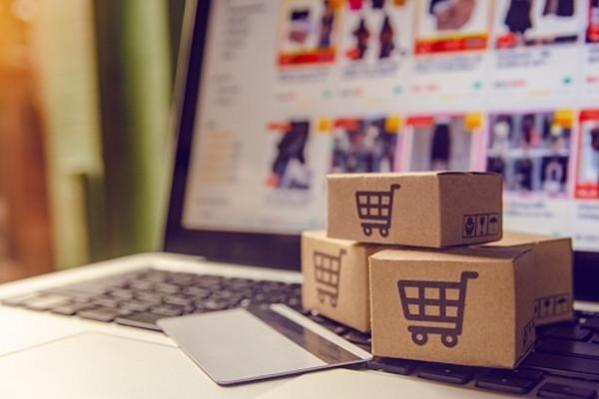
The Indian e-commerce market is projected to reach an impressive $325 billion by 2030, according to a report by FICCI-Deloitte. This growth is propelled by robust rural demand and a compound annual growth rate (CAGR) of 21%. The retail sector, currently valued at $753 billion in FY23, is expected to post a 9.1% CAGR until FY27, the highest among large economies. Retailers are rapidly adapting to omnichannel strategies, tech-enabled experiential selling, and launching new private labels to cater to India's price-sensitive yet aspirational consumers. The expansion of retail networks in tier 2 and 3 cities is expected to contribute significantly to this growth.
The report also highlights the role of increased smartphone penetration, internet access, and growing disposable incomes in fueling this expansion. Quick commerce, which focuses on the rapid delivery of essentials, has disrupted traditional supply chains and reshaped consumption patterns. The growth of the Indian e-commerce market is also being fueled by heightened competition from direct-to-consumer (D2C) brands, a rising focus on premiumisation, and innovative new product development tailored to the needs of young and middle-income consumers.
The Pradhan Mantri Jan Dhan Yojana (PMJDY) has significantly influenced the e-commerce and retail sector in India by bringing millions of rural Indians into the formal financial system. This has led to a rise in credit-driven consumption in small cities and towns, which Finance Minister Nirmala Sitharaman hailed as a revolutionary shift. The government has also lauded the meteoric rise in credit-driven consumption in small cities and towns, calling it a "revolutionary shift." According to the central bank, household consumption is poised to grow faster as headline inflation eases "with a revival of rural demand already taking hold".

The FICCI MASSMERIZE 2024 event emphasized the importance of quality in products and India's efforts to establish its own standards. The event highlighted the role of innovation, technology, and consumer-centric approaches in driving growth and achieving the vision of a Viksit Bharat. Generative AI is a powerful technology that leverages vast datasets to create personalized experiences and optimize various aspects of retail operations. It's not limited to one area but offers multiple benefits across different functions. In content creation and optimization, Gen AI autonomously generates and improves product descriptions and copy, reducing the need for extensive human involvement. It also excels at providing personalized discounts by analyzing purchase history.
Blockchain technology is a decentralized ledger system that provides robust security and transparency for safeguarding digital assets in the retail sector across the digital landscape. Through its immutable and distributed nature, blockchain ensures the integrity of transactions and data, reducing fraud and enhancing trust. For example, in supply chain management, blockchain can trace the origin and journey of products, allowing customers to verify the authenticity and quality of goods. It also acts as a powerful tool for driving sustainability within the retail sector by providing retailers insight into their supply chains, promoting responsible sourcing and reducing waste. By verifying product authenticity, blockchain helps combat counterfeiting, ensuring that consumers receive genuine, quality products discouraging the production of environmentally damaging fakes.
Indian e-commerce market is poised for significant growth, driven by a combination of factors including increased rural demand, technological advancements, and government initiatives. The adoption of innovative technologies like Generative AI and blockchain is set to further revolutionize the sector, offering enhanced customer experiences, improved operational efficiency, and increased transparency and trust. As India continues to embrace the digital revolution, the future of its e-commerce market looks promising, offering immense opportunities for businesses, consumers, and the economy as a whole.

















